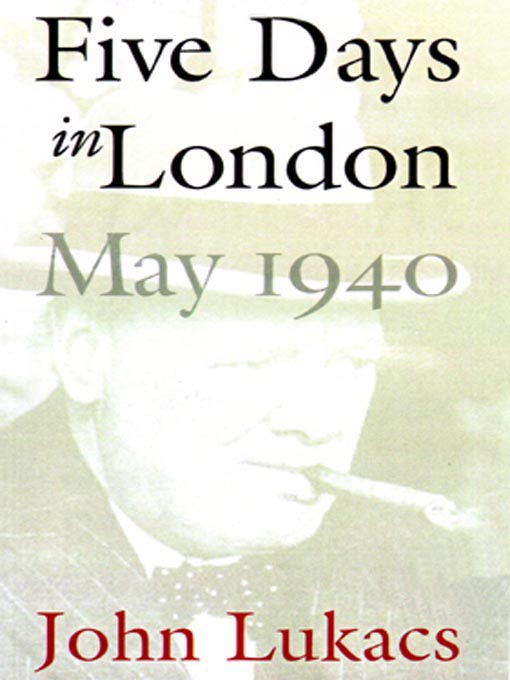
Five Days in London
May 1940
کتاب های مرتبط
- اطلاعات
- نقد و بررسی
- دیدگاه کاربران
نقد و بررسی

Over five crucial days in May 1940, the British, under the leadership of Winston Churchill, resolve to fight the Nazis, rather negotiate with Hitler. With a delightful British accent and a professional quality voice, Howard reads this fascinating book. Howard's pace is excellent, and he never falters with the many names of foreign individuals and places. Howard's reading also communicates the tension during those fateful days. Lukacs's text, which presents the background to and significance of those days, is sharply written. M.L.C. (c) AudioFile 2000, Portland, Maine

Starred review from August 30, 1999
Eminent historian Lukacs (Thread of Years, etc.) delivers the crown jewel to his long and distinguished career with this account of five days--May 24-28, 1940--"that could have changed the world." Lukacs posits that it was during those five days in London "that Western civilization, not to mention the Allied cause in WWII, was saved from Hitler's tyranny." A grand view, to be sure, but the consequences are not in dispute: "Had Britain stopped fighting in May 1940, Hitler would have won his war," writes Lukacs. "Thus he was never closer to victory than during those five days in May 1940." A quarter-million British troops were trapped by the Germans at Dunkirk. The British public, ill-informed about this reality, remained apathetic, and the War Cabinet was divided over what action to take. Neither the United States nor the Soviet Union had yet entered the war, but Churchill resolved to fight "till Hitler is beat or we cease to be a state." Lukacs draws heavily on newspapers and public opinion research of the time to re-create the rapid series of events that turned the tide, swaying both the citizenry and the War Cabinet to rally behind Churchill. Though Churchill did not win the war in May 1940, as Lukacs puts it, he "did not lose it" then. Lukacs covered some of the same turf in The Duel, yet this new work focuses on these five days with a microscopic view. It is the work of a man who lives and breathes history, whose knowledge is limitless and tuned to a pitch that rings true.

























دیدگاه کاربران